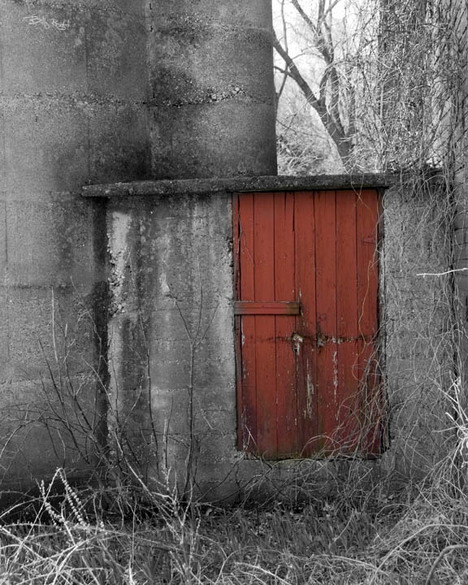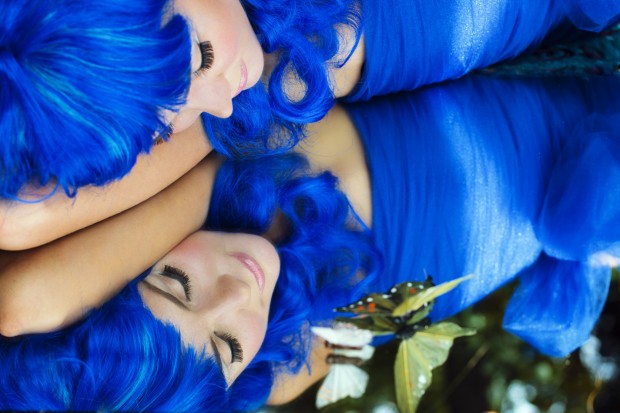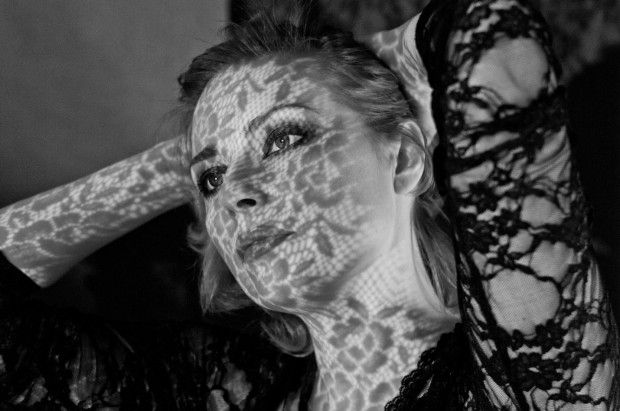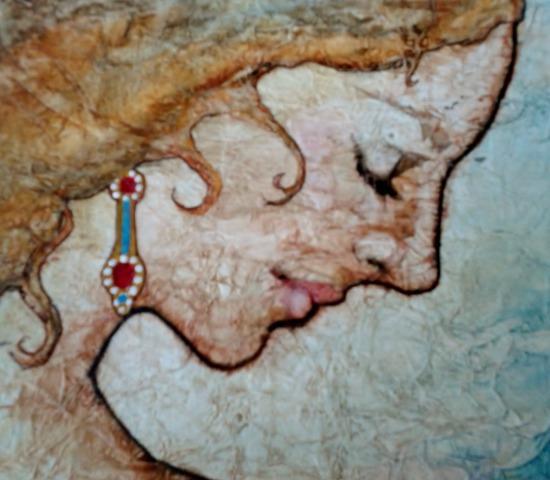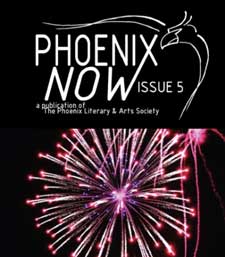Author Archive
Legs, by Kabntsig Xiong
My dear legs
That support me
Take me places and hold me high
Do as I request; rather it’s wet or dry
The glory of heels and the pain of sharp glasses
Only resting as I sit or sleep,
The weights you carry,
The blood you shed and bruises you share
I remembered them.
So dear feet,
Thanks for being there for me.
Day Off, by Kabntsig Xiong
The alarm clock rang.
His pale stubby hand slammed into the object and silenced it. Grunting, he pushed the heavy white blanket aside and squinted to look at the time. It read 4:00 AM.
The celebrity shot up. He looked out the window, the half moon peering into his bedroom. The silence of the early morning seeped into him. He rubbed his eyes, his thick black hair disorderly. He’d had only three hours of sleep.
“Free day,†Nino mumbled.
Inside his dark bedroom, he pulled off the covers and put on the white slippers stationed by his bedside. The cold air clung onto his fair skin. He stood up, revealing a lean fragile frame, five feet and six centimeters, wearing a white t-shirt that looked too big on him and pink sweats. Nino yawned and stretched his arms. Guided only by the moonlight, he walked around the comic books and games piled on the floor, passed his guitar and piano, and into the darkness of his bathroom. He washed up and minutes later he was sitting across his flat screen T.V with his game controller in hand. He relaxed comfortably on the hard, cold, wooden floor, leaning against his sofa.
“Not good.†He searched around the surrounding area, using the lights coming from the screen as guide. “Where is it?†Nino stood up and thought. Seconds later he returned to his bedroom and found the smart phone lying on top of his desk along with a few lyrics, pencils, books and a script.
He had a text message.
Nino, what’s your schedule today?
“Sorry,†Nino drawled and turned off his cell. No one was going to bother him today, not his manager, not even his friends.
“Today’s my day off,†Nino told the phone before throwing it onto the bed and headed towards his living room. There was no time to waste, especially when he knew that tomorrow was going to be another full day of work.
ESCAPE, by Mary Jones
“If one says ‘Red’ – the name of color – and there are fifty people listening, it can be expected that there will be fifty reds in their minds. And one can be sure that all these reds will be very different.” — Josef Albers.
“The Red Door” by Billy Knight used by Mary Jones, with Permission
Red is my favorite color; also one of Scorpio’s, which I proudly boast as my astrological sign. It immediately draws me in, like a moth to a flame. It’s energizing, powerful, ornamental, and obtrusive, represents sexuality, and is the color of the highest arc of the rainbow. It evokes action; stop, pay attention, incite, heed, usher. It lures and jabs my inner most precious feelings and private thoughts, and makes my heart race, as if I’m riding a horse running at full stride or watching the final seconds of a close basketball game.
The hue of the door entices me, and my degree of desire for the unknown rouses me to take action. Some would be intimidated by the deterioration, but somehow that beckons me. The passion to investigate leads to burning motivation and in turn, the driving question, what is held within? What mysteries and treasures are waiting to be discovered inside this seemingly abandoned shed, with a door of the most striking red hue? The blistering sun and torrid rains have battered it, paint peeling, revealing a plethora of shades underneath. Jet-black stains streak down the front, but I’m lured, nonetheless. It halts me in my tracks, as if I’d been snatched out of a blissful daydream by screeching brakes.
As I gaze upon it, my hesitation about opening the door swiftly moves to the forefront. Will bats fly out? Are raccoons or squirrels residing inside? Is it infested with spiders or wasp nests? Then again, shelves lined with fascinating trinkets and treasures, perhaps antiques, anxiously awaiting rediscovery, may exist. The eagerness to explore tugs my most basic curious nature, and I grasp the charcoal black weathered handle. It is smooth and worn, like my favorite jeans, and dirty and greasy, from years of use. As it slowly swings open, the hinges squeak, like the sound of fingernails on a chalkboard, and the grating noise causes me to cringe.
I have no idea how much time has elapsed since someone was last inside. At first glance, with filtered light shining in, the space appears empty. It’s dingy and smells a bit musty, and I sneeze, the sound startling me. I pause, and quickly peer over my shoulder to see if anyone has heard. It’s just me. I am relieved, and because I know I’m alone, I cautiously continue my investigation.
I turn back and my eyes adjust to the dimness. I observe cobwebs dangling between beams overhead, the fine filaments, wispy, like clouds on a warm summer day. The floor is made of wooden planks, four inches wide and six feet long, running parallel to the door. They’re covered with dry leaves and small twigs, and they crunch and rustle under the soles of my favorite brown boots as I enter. I’m surprised to see the inside of the door isn’t red. It’s hoary, and a beautiful shade of raw umber, similar to a watered down cup of coffee.
I recognize a variety of items hanging on the walls. To the left, hand tools including hammers in various sizes with different colored handles, some wrapped in black electrical tape, hatchets, levels, planers, screwdrivers, ratchets, wrenches, some antiquated, and vises. On the right, spring-released animal traps, with nothing in them, and I laugh inwardly, relieved. I glimpse a metal lawn rake with a broken handle, as well as a spade, shovel and hoe. A rusty sickle, dangles precariously on a nail, rocking gently back and forth, like a pendulum on a grandfather clock.
An old rickety ladder, with some of the risers snapped in half, is gingerly hanging on two bent hooks. A few tin cans, labels still affixed in muted colors, and glass baby food jars with screws, nuts, washers and nails, are placed on top of horizontal boards; make shift shelves, so they won’t topple over, spilling their contents. I recall my father, and how he organized his own workshop. There’s familiarity, which elicits a sense of pride in this simplistic approach to organization.
Ripped and tattered newspapers lie haphazardly in the left corner, smaller pieces scattered throughout, gnawed by mice to build their nests. Some rusty beer and soda cans in the opposite corner, and miscellaneous odds and ends. A wooden three-legged stool, standing two feet high, proudly occupies the middle of the space. It reminds me of a soldier, solid, stout and strong.
There are a few things on the wall I don’t recognize, and I yearn to know what they are. Past and present collide when I utilize my phone to take a few photos. I press the button, and the click of the shutter booms, like a firecracker, inside the small space.
I’m extremely cautious. My instincts tell me to leave everything undisturbed. It’s possible these things have been forgotten, but they don’t belong to me, and proper judgment says better to leave all as is. I finish taking my photos, glance around briefly, step outside, and slowly shut the door. The latch falls into place, as it has countless times previously; it knows exactly where it’s supposed to be.
I retreat a few feet and focus on the front of the shed again. I stare, with appreciation and longing, and soak in the serenity of the structure. It is profuse with history well beyond what I’ve found inside. There are stories I don’t know, a lifetime of secrets, laughter, joy, pain, sorrow, tears. It inspires me, and makes me long to know who, what, why, when and where.
I quietly depart, my heart bursting with excitement, knowing full well I’m destined to return. Maybe I’ll bring someone, but more than likely will come alone. Sometimes the best gifts are the ones I discover on my own and selfishly choose not to share. They become priceless, precious, even palatine, because of the memories they hold.
My life needs this amazing, purposeful, tiny structure with the red door that takes my breath away. It’s a place I can call secretly call my own.
It is my escape.
Marine Proof, by Matthew J. Mitchell
The four of us had a lot to drink; Hutchenson tossed a few more than the rest. As we hadn’t been able to persuade him to hail a cab, he was driving back to the barracks, and not a moment too soon. It was one in the morning according to his dashboard clock, so the last day of class had already started. Our graduation ceremony from the USMC Air Station, Cherry Point, NC would be that afternoon. We’d been broken down and remolded in thirty-two weeks of training with little play. All of us were grown men, but with the first freedom from our leash; as boys we bolted. Private First Class Lacy and PFC Knutson were in the back seat while I rode shotgun in Hutch’s Chevy Silverado. Rather than storm the main gate, he had decided to cut through base housing to avoid the Military Police and a DUI.
For once it wasn’t raining, but a fog had rolled in from the coast similar to the one swirling around in my head. The superhero ability to find the humorous side of life’s little travails had deserted me.   My thoughts were dwelling in the sea of mist, and I was about to drop anchor when the flashing red from the MP’s car overtook my attention. We all pretended not to look in any one direction when our eyes met and Hutch leaked, “Oh, shit.â€
Try as we might, we couldn’t dismiss the unsettling beacon. It was, both, at odds with our new life and its chain of command and, at the same time, a familiar sign of authority. Hutch pulled over. He rolled down his window as the flashing red spun off a smaller white light that then bobbed toward the truck. It speared in and stunned each of us in turn and then concentrated on Hutchenson alone. I watched helplessly as it sucked all wit from my friend and charged his nerves so he shook down to his fingertips reaching for the registration. I knew, then, that all his bravado, there so recently, was gone and he would crash. We all watched as Hutch fumbled to open his door and was led to the mark where both headlights spotted him. He read his lines and walked the trapeze with little success and even less applause, though we did sympathize with his sudden stage fright.
Just as I was finding security in the role as spectator, one MP broke away and headed in my direction. Before I could roll down the window the officer snatched open the door and motioned me out. I marched to the front and center where I turned a back on the remaining audience, as my routine was not well perfected.  I surrendered the newly glossed identification as ordered. My tempered thoughts and yet unreasonable anger focused as Hutchenson stumbled and then fell from my peripheral view.
Lacy and Knuts, as if on cue, climbed out and, with the MP’s direction, we all assembled within the vortex created by the headlights, fog and our own vexation. With a silent agreement to study the license plate and to abide by the house rules, we began throwing out questions and answers like dice in a craps game. Busted early, Hutch was cuffed and placed in the back of the squad car. I was preoccupied, so failed to remind the officers that the reverse: what goes down always comes up, is also true. They rejoined the party cooling our heels for the results and the extent of our losses. The MPs passed my ID and Hutch’s truck keys to me as I was the highest ranking of the four and deemed, falsely I might add, in control. Knuts and Lacy knocked the big six and eight, the easy break-even bet, and were freed. Both immediately hit the pavement in the direction for the barracks. Interrupted in my hopes for a lucky throw, I was told to join Hutchenson in the back seat where my cohort had begun to empty his gut between his feet. It seemed I had crapped out.
What awaited us through the fog was not a dungeon, but a modern Military Police station with large paned glass stretched across the front. Without commotion, Hutch was ushered to a holding cell in the back. The door shut, leaving me to conspire with only my reflection in the window as to who should hold the guilt and what we should do with it. One was convinced that because I was not the leader of this expedition in any official capacity I could hardly be held accountable. Though not unanimous in our findings, by the time the MP’s returned and let me go (between two and three in the morning, I think) “me and my shadow†had agreed to table the discussion. It was a blurry juxtaposition from the station to my room where sleep finally claimed me as a pauper to his tomb.
From my anchorage in the heaving swells I was cut loose, first drifting to rocking and then almost upturned on the peaks of the high seas. Against better judgment, I opened an eye to find my roommate scowling at me. Over his shoulder, the clock glowed 5:29. I was trying to discern what I could’ve done in my sleep to upset him when he pointed to the door, tumbled to his bed and snored an ultimatum from under his breath.
Just as I got to the door, which I found already cracked, it whipped open and Hutchenson grabbed my arm to yank me out on the sidewalk. It wasn’t cold so I didn’t notice I was wearing only my skivvies. He demanded his keys. After an instant or two, I remembered and went to find my pants neatly puddled at the foot of my bed. I fished them out and, without thinking, returned outside to hand them over. As he was giving me the generals to his plan of escape, I was realizing it was getting colder and the snowball rolling down hill had become a full blown avalanche. I had to attempt to halt his crazy scheme to cut and run and join the merchant marines. At the precise moment when I decided to steal back the keys to his plan, our eyes met and his narrowed. For a span we were two gunslingers facing each other at high noon. He drew first, dropping them in his pocket. A DUI was one thing. Going AWOL was another; besides, they’d track him down. They always did. Before I clued him in, he cut me off again. Hitting below the belt, he whistled out with his thumbs up and pointed to my “nice tighty whities.â€Â I looked down and, then, back up to see him saunter off toward his truck. In a flash, I performed a triple jump over the threshold, across the room and back to my rack.
Forty-five more minutes of shut-eye did not help to organize my thoughts and would have been better used to square away my uniform. I skipped breakfast and made a dash to catch Lacy and Knutson before they reached the flight-line; a perfect flanking maneuver. I wanted to make sure our stories were in sync, but there was no need. They shrugged it off with ease and pinned the weight squarely on my shoulders right next to the rocker I wore there and on my collar.
Twenty minutes later, in a hangar with the innards of several jets strewn about, I was standing in formation. With as little outward reaction as I could muster, I noticed the lack of interest in Hutchenson’s absence from roll call. It seemed everyone caught their breath, though, when an order for Lance Corporal Mitchell’s report to the Sergeant Major shot out into the bay. It echoed and continued to bounce around the high metal ceiling like it hadn’t yet found its mark. There was an acute urge to duck and run from the stares as I would from so many tracking lasers and tracer bullets. I didn’t even know which way to go and was, myself, propelled in several directions before striking an exit hole. Though I hadn’t been there before, I gained the Sgt. Major’s office by following the red carpet. Not at all similar to the yellow brick road with winding curves; it did not meander but led right and left with crisp corners and then ramrod straight to his door.
Standing at attention to the Sgt. Major was not like confronting the Wizard of Oz, either. There was no blustering with little to back it up. This man sat at ease, fully confident and capable. I felt a fervent need to take in every detail, but per protocol, maintained my thousand-yard stare. On the other hand, I wanted his eyes anywhere but on me. I think he suffered from oppositional defiant disorder, because he coolly continued to look me up and down. I should have been wary, but he posed the question that always catches me off guard. It, all at once, removes the possibility of gleaning some indication for how much is already known, belies total ignorance and requires one to accept, as if by default, responsibility or guilt. He asked, “Do you know why you are here?â€
Of course I knew why I was there. The four of us had decided to get real haircuts, though each of us had hiked ourselves out of the barber’s chair with the same high and tight as we had before. Hutchenson had suggested a barber neighboring both a tattoo parlor and a bar. I indicated to the Sgt. Major the convenience of the arrangement not only as the beginnings of a joke, considering Lacy and Knutson wanted a tat. With their cash already in hand, I should have smelled a set up. As we were all thirsty, this plan was ideal in killing three birds with one rock. Once a Marine, always a Marine. We don’t say “one is as dumb as a stone.â€Â The Sgt. Major broke in to admit that he knew the spot; it had been there for as long as he could remember and at least one from every squadron got caught in that fly trap. I picked up the tale as we traded the barber for the tattoo parlor.
Seeing I was not interested in getting a tattoo, I went along as moral support. The others showed me the logos that would bedeck their bums: tribal bands, eagle, globe and anchors and such. While they discussed which part of their anatomy to brand, I wandered around observing the sketches as if in an art gallery. Up near the ceiling in a far corner I found mine. I think it’s those instant decisions that bite me on the ass; though, that’s not where I was getting this one. A dragon with long claws and winding tail wrapped around a heart was going to stamp my biceps so it would beat when I flexed. After convincing me, the others had chickened out. The Sgt. Major sat forward with interest at this point in my account. Still at attention, like a half salute, I ripped off the bandage. He set me “at ease†and I turned to genuflect; whereupon, I bent my arm and took a knee in a classic Atlas stance. I, then, rocked back on my heels, feet shoulder-width apart, hands clasped behind my back, careful not to smile. He commented on the work and spurred me on. As the tattoo had taken over two and a half hours to install and the guys had been bringing me beers from next door all the while, the party indubitably moved to the bar.
I swaggered in and made myself comfortable in the perfect spot chosen by the trio to scope out the dance floor. Like the tat, I was staring at the one. To my surprise, without a prompt, she bounded up and bounced down in my lap. She whispered in my ear to kiss her quickly. I didn’t know what she meant, so did what she wanted. I asked her, “Like that?â€
“No,†she said, “longer.â€Â This time, following her eyes, I caught her drift. Hutch, advancing in our direction, halted in momentary confusion, retreated and relinquished his prey. Later I would wonder whom I really saved. After a few dances, kisses and drinks mixed together, she led me from the bar. Naturally, as she hadn’t lived far, we went all the way.
I’d like to say “much later,†because I was still amorous; she was done. She stretched, grabbed my dog tags and literally kicked me out of bed, breaking the chain. I quickly dressed, picked up my shattered identity, and headed back to the club. Hutch, though over his anger, was already far-gone. Here the Sgt. Major asked her name. I told him I couldn’t remember; to which he responded, “That part is always the same.â€
“I’m missing a dog tag.†I confessed. He admonished but assured me S-1 would replace it. His anecdote (despite our best efforts, there is always one bear’s claw caught in the honey jar) helped to alleviate some of the guilt. I stood straighter, still, when he stated with certainty that I should take pride in the fact I escaped with only a scrape to my dignity. He also convinced me a good sense of humor had always seen him through.
Before being dismissed, I was given one more lesson in the form of an order so to speak. “What happens in the field stays in the field; meaning: that story was only for me.â€Â He saw the thought clearly written on my face and added. “Hey, it’s good to be the Sgt. Major.â€
All the Tears, by Terrance West
All the tears,
and all the crying.
All the days with all the lying
All the fears
And
All alone
Holding together all I’ve known.
All the faces that are supposed to care
turn their backs and leave you there.
Do you wonder why it happens that way,
The same old mistake you can’t take away.
Every word is a lie,
That’s what they say, the bitter and grey
My god what a shame.
Do you hold out hope for those better days to come and rescue you before you go insane.
Do you praise the lord for all of the pain, that help to change you in unexplained ways.

